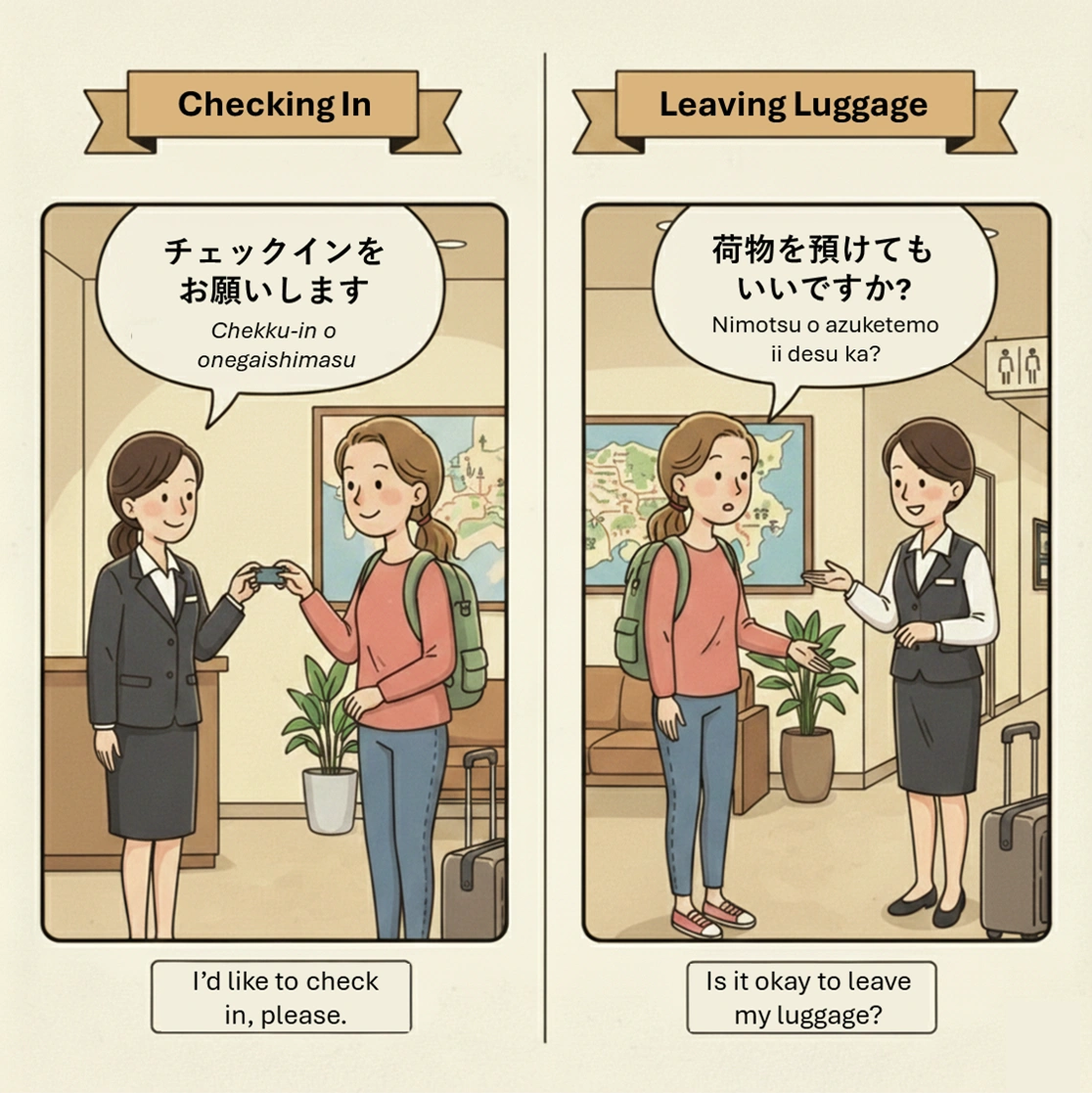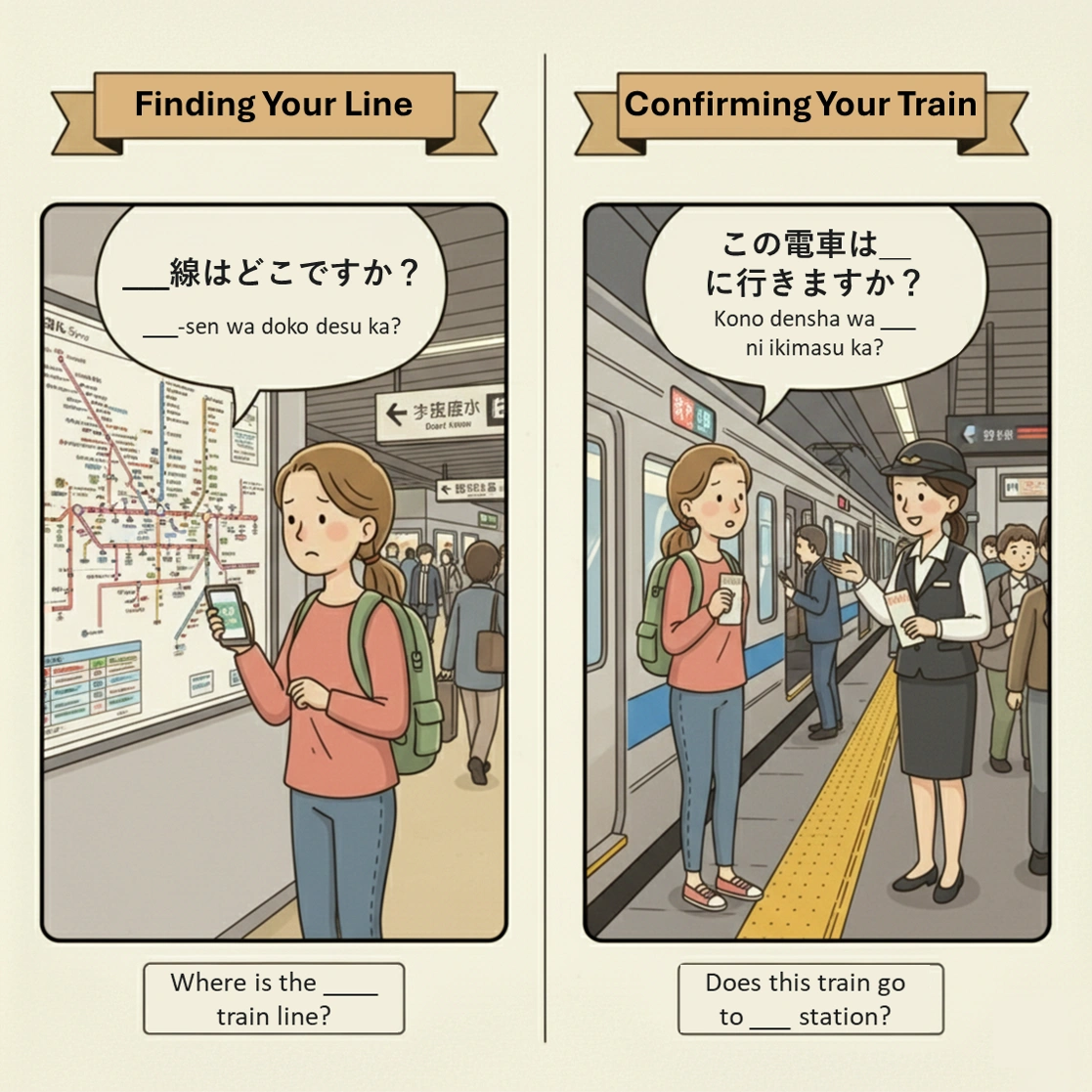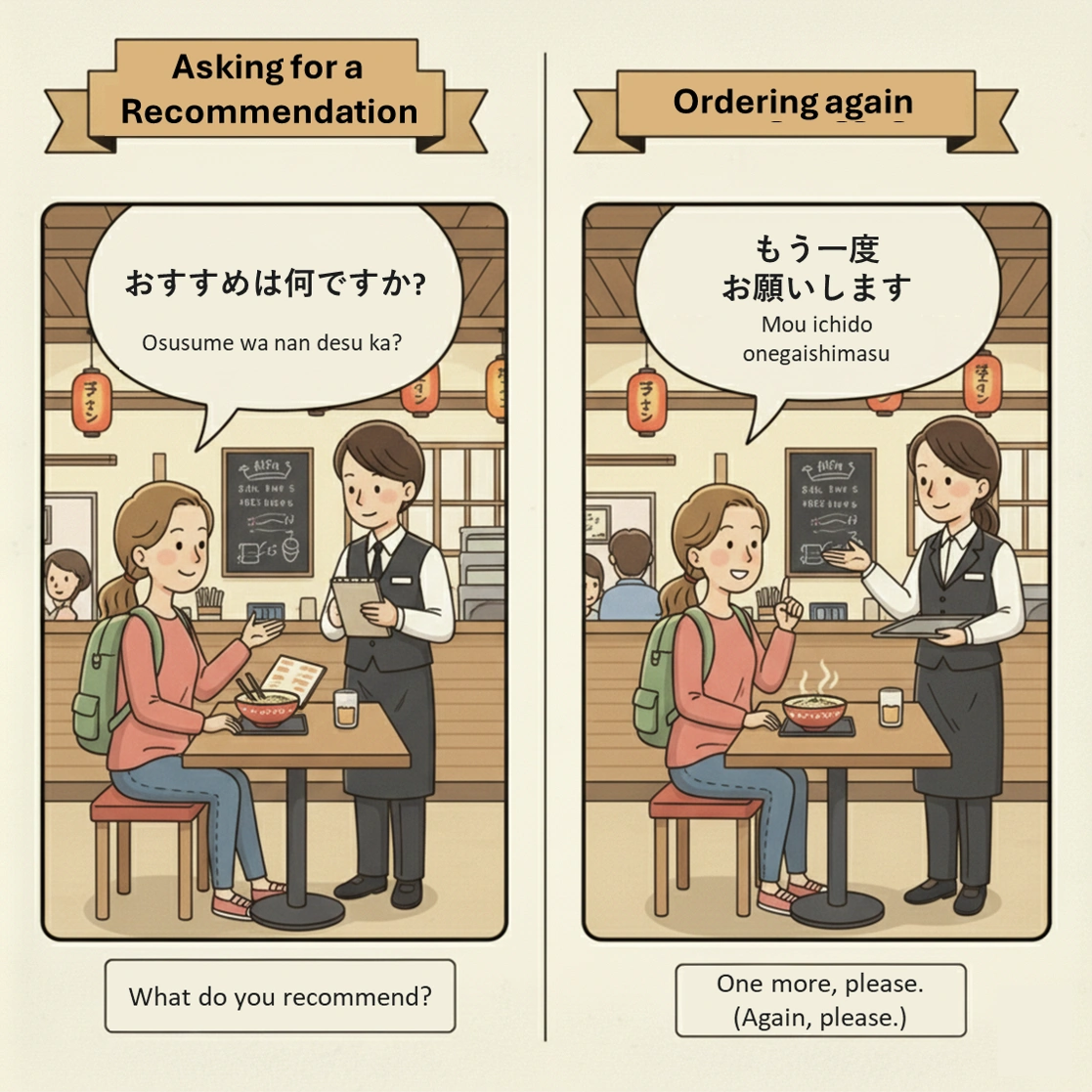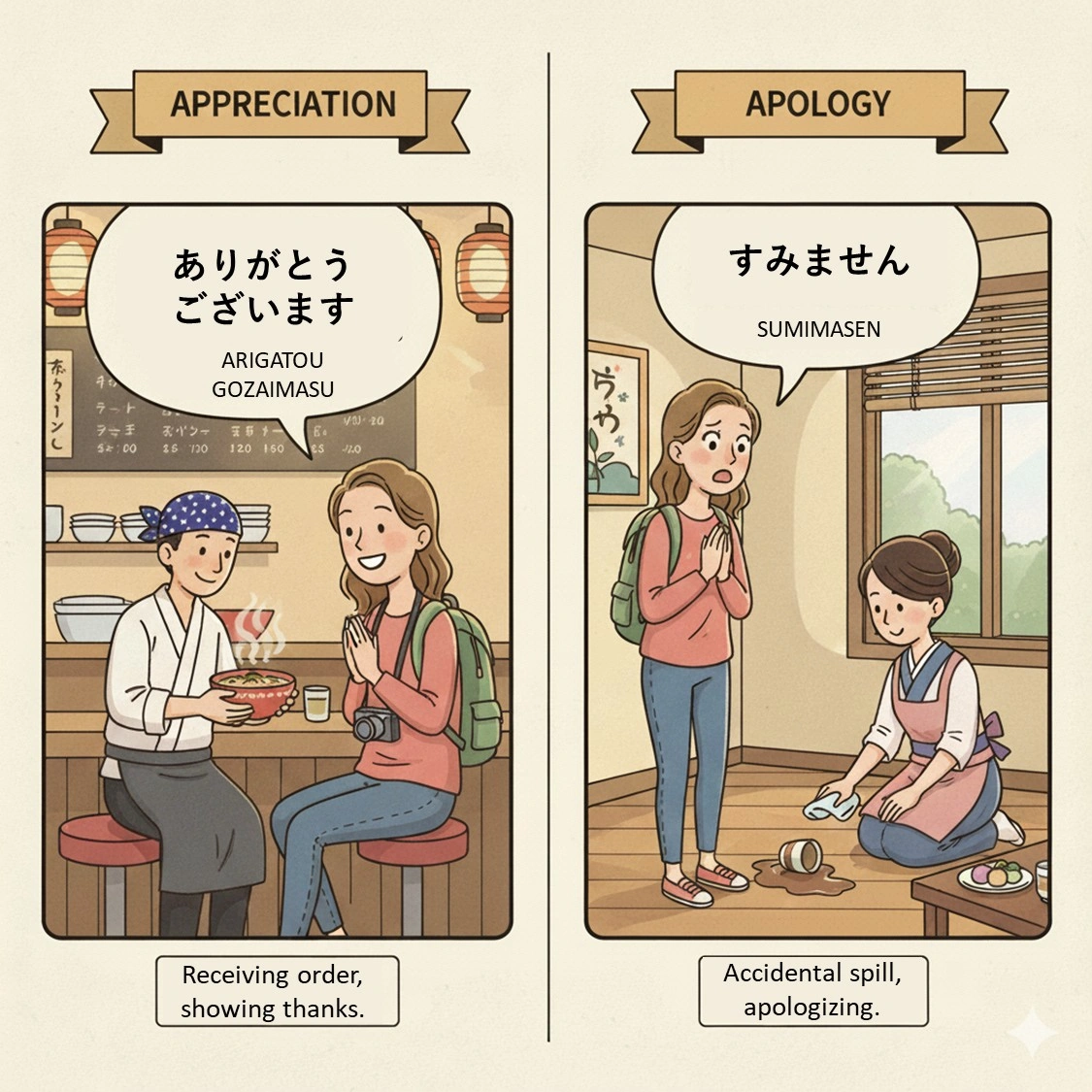25 Essential Japanese Hotel Phrases for a Smooth Stay
Published: November 11, 2025 | Reading Time: 10 minutes
Japanese hospitality, or "omotenashi" (おもてなし), is famous all over the world. From modern business hotels to traditional ryokans, the level of service you'll get in Japan is really something special. While many hotel staff in major cities speak English, knowing key Japanese phrases makes your stay even better, shows cultural respect, and helps you handle situations where English support might be limited. Whether you're checking into a capsule hotel in Tokyo or a traditional inn in Kyoto, these 25 phrases will help you out.

On This Page
1. Why Hotel Phrases Matter2. Making Reservations & Arrival3. Check-In Process4. Room Requests & Amenities5. Hotel Services & Facilities6. Handling Issues & Requests7. Check-Out & Departure8. Special: Ryokan & Onsen Etiquette9. Frequently Asked Questions1. Why Hotel Phrases Matter
Hotels are your home base during your Japan trip. Being able to tell people what you need, understand the services, and get through check-in and check-out makes your stay way smoother. More importantly, using Japanese phrases shows respect for the culture and often gets you even better service than the already amazing standard.
"Omotenashi" (おもてなし) is about knowing what guests need before they even ask. When you speak Japanese, you're meeting your hosts halfway in this cultural exchange.
These phrases work for all types of places—from budget capsule hotels to luxury ryokans. The formality level is right for talking with staff in any hotel setting.
2. Making Reservations & Arrival
While most travelers book hotels online, these phrases come in handy for walk-ins, phone reservations, or confirming your booking when you arrive.
- 予約をお願いしますYoyaku o onegaishimasuI'd like to make a reservation, please
Useful when calling to book or when you want to reserve facilities like the onsen or restaurant.
- 予約していますYoyaku shite imasuI have a reservation
Your most important phrase upon arrival. Follow with your name.
- ___泊お願いします___-haku onegaishimasu___ night(s), please
Replace with: ippaku (1 night), nihaku (2 nights), sanpaku (3 nights), yonhaku (4 nights).
- シングルルーム / ダブルルームShinguru ruumu / Daburu ruumuSingle room / Double room
Also useful: "Tsuin ruumu" (twin room - two single beds), "Toripuru ruumu" (triple room).
3. Check-In Process
Check-in at Japanese hotels can be pretty formal. These phrases help you get through the process smoothly and understand what people are asking you.
- チェックインをお願いしますChekku-in o onegaishimasuCheck-in, please
Say this when you approach the front desk. You'll typically need to show your passport.
- 名前は___ですNamae wa ___ desuMy name is ___
State your surname clearly. In Japan, surnames come first, but for reservations made in English, use your regular name order.
- パスポートですPasupooto desuHere is my passport
Hotels are required to record foreign guests' passport information. Have it ready at check-in.
- チェックアウトは何時ですか?Chekku-auto wa nanji desu ka?What time is check-out?
Standard check-out is usually 10 or 11 AM. Knowing this helps you plan your morning.
- 朝食は付いていますか?Choushoku wa tsuite imasu ka?Is breakfast included?
If yes: "Tsuite imasu" (It's included). If no: "Tsuite imasen" (It's not included). You can also ask "Nanjikara desu ka?" (From what time?).
Check-In Tip
Japanese hotels take check-in and check-out times seriously. Early check-in might cost extra, and late check-out needs to be set up ahead of time. If you get there before check-in time, most hotels will happily store your luggage for you. Use "Nimotsu o azuketemo ii desu ka?" (May I leave my luggage?).
4. Room Requests & Amenities
Japanese hotel rooms are often smaller than what you might be used to in the West, but they're designed really efficiently. These phrases help you ask for what you need.
- 部屋を見てもいいですか?Heya o mite mo ii desu ka?May I see the room?
More common in budget accommodations or ryokans. Most chain hotels won't accommodate this request.
- もっと静かな部屋はありますか?Motto shizukana heya wa arimasu ka?Do you have a quieter room?
Useful if you're given a room near elevators or an ice machine. You can also request "Kinchou menjou no heya" (non-smoking room).
- ___をもう一つください___ o mou hitotsu kudasaiOne more ___, please
Fill in with: taoru (towel), makura (pillow), moufu (blanket), hangar (hanger).
- Wi-Fiのパスワードは何ですか?Wai-fai no pasuwaado wa nan desu ka?What is the Wi-Fi password?
Most hotels have free Wi-Fi. The password is often in your room or provided at check-in.
- エアコンの使い方を教えてくださいEakon no tsukaikata o oshiete kudasaiPlease show me how to use the air conditioner
Japanese AC/heating controls can be complex. Don't hesitate to ask for help. Replace "eakon" with other appliances.
5. Hotel Services & Facilities
Understanding hotel services and how to ask for them is key to having a comfortable stay.
- ___はどこですか?___ wa doko desu ka?Where is the ___?
Essential for finding: onsen (hot spring bath), sentaku-shitsu (laundry room), jihanki (vending machine), erebeetaa (elevator), kaidan (stairs).
- ルームサービスをお願いしますRuumu saabisu o onegaishimasuRoom service, please
Call from your room phone. Note that many budget and mid-range hotels don't offer room service.
- モーニングコールをお願いしますMooningu kooru o onegaishimasuWake-up call, please
Follow with the time: "Gozen roku-ji ni" (at 6 AM). Gozen = AM, Gogo = PM.
- 荷物を預けてもいいですか?Nimotsu o azuketemo ii desu ka?May I leave my luggage?
Perfect for before check-in or after check-out. Hotels will store luggage for free on your check-in/check-out day.
- タクシーを呼んでいただけますか?Takushii o yonde itadakemasu ka?Could you call a taxi for me?
Front desk staff are happy to arrange transportation. You can also ask them to write your destination in Japanese.
Understanding Hotel Amenities
Japanese hotels often have unique amenities and services. Reading the hotel information booklets in your room helps you find out about restaurants, massage services, and other convenient facilities on site. Building your reading ability through real content helps you understand these materials and get the most out of your stay.
YoMoogives you articles about Japanese hospitality, travel tips, and cultural insights—great for understanding the background behind hotel services and customs.
6. Handling Issues & Requests
Sometimes things go wrong. These phrases help you politely tell people about problems and ask for help.
- ___が壊れています___ ga kowarete imasuThe ___ is broken
Fill in with: terebi (TV), eakon (AC), shawaa (shower), toire (toilet), denki (light).
- ___が出ません___ ga demasenThe ___ doesn't come out / work
For: oyu (hot water), mizu (water). "Oyu ga demasen" = Hot water doesn't come out.
- 隣の部屋がうるさいですTonari no heya ga urusai desuThe room next door is noisy
Staff will handle noise complaints professionally. Japanese hotels really value quiet environments.
- 部屋を変えていただけますか?Heya o kaete itadakemasu ka?Could I change rooms?
Use this if there's a problem with your current room. Hotels will usually accommodate if rooms are available.
- ___を忘れました___ o wasuremashitaI forgot my ___
For: heya no kagi (room key), pasupoto (passport), saifu (wallet). Follow with "Arimasu ka?" (Do you have it?).
7. Check-Out & Departure
Checking out smoothly and thanking people for the hospitality is important in Japanese culture.
- チェックアウトをお願いしますChekku-auto o onegaishimasuCheck-out, please
Return your room key and settle any outstanding charges.
- レイトチェックアウトは可能ですか?Reito chekku-auto wa kanou desu ka?Is late check-out possible?
Usually costs extra. Ask about this the night before or early in the morning.
- 領収書をくださいRyoushuusho o kudasaiReceipt, please
Important for business travelers or expense tracking.
- クレジットカードで払えますか?Kurejitto kaado de haraemasu ka?Can I pay by credit card?
Most hotels accept cards, but some smaller ryokans may be cash-only.
- お世話になりましたOsewa ni narimashitaThank you for taking care of me
A polite way of thanking them for their hospitality. Great for check-out. This phrase goes beyond "thank you" to recognize the care you got.
8. Special: Ryokan & Onsen Etiquette
Traditional ryokans and onsen (hot spring baths) have specific customs and etiquette. Understanding these phrases and rules makes your experience even better.
What is a Ryokan?
A ryokan (旅館) is a traditional Japanese inn with tatami mat floors, futon bedding, Japanese-style meals (kaiseki), and often an onsen. Staying at a ryokan is a cultural experience that gives you a deeper look into Japanese hospitality traditions.
- 大浴場は何時まで開いていますか?Daiyokujou wa nanji made aite imasu ka?Until what time is the large bath open?
Important to know since many onsens close late at night or have times when they're being cleaned. Some switch between men's and women's hours.
- 浴衣を着てもいいですか?Yukata o kite mo ii desu ka?May I wear the yukata?
Yukata (casual cotton kimono) are provided in ryokans. You can wear them around the inn and to the onsen. Proper wrapping: left side over right (right over left is for funerals!).
- 夕食は部屋で食べられますか?Yuushoku wa heya de taberaremasu ka?Can I eat dinner in my room?
Many ryokans serve fancy kaiseki dinners in your room or in a private dining area. Breakfast works the same way.
- タトゥーがありますTatuu ga arimasuI have a tattoo
Many onsens don't allow tattoos because of their connection with yakuza. Some have private baths or are tattoo-friendly. Always ask ahead of time: "Tatuu demo daijoubu desu ka?" (Are tattoos okay?).
Basic Onsen Etiquette
- Wash thoroughly before entering:Use the shower station to soap and rinse completely
- No clothes or towels in the bath:You can bring a small towel for modesty while walking, but don't put it in the water
- Hair up:Long hair should be tied up to keep it out of the water
- Quiet atmosphere:Onsens are for relaxation—keep conversations quiet
- Hydrate:Drink water before and after to avoid dehydration
Explore the "Essential Phrases" Series
Mastering everyday situations is key to a smooth trip. Continue building your confidence with our other guides in this series:




9. Frequently Asked Questions
Do I need to tip hotel staff in Japan?
What should I do if I lose my room key?
Can I request an early check-in or late check-out?
What's the difference between a hotel and a ryokan?
Do I need to remove my shoes in hotels?
What if I have a problem I can't communicate in Japanese?
Final Thoughts
Japanese hotels and ryokans offer world-class hospitality based on the principle of omotenashi—knowing and taking care of guests' needs with grace and attention to detail. By learning these key phrases, you show respect for this cultural value and make your own experience even better. Whether you're staying in a budget business hotel or a luxury ryokan, phrases like "Osewa ni narimashita" (Thank you for taking care of me) recognize the care you've gotten and create real connections with your hosts.